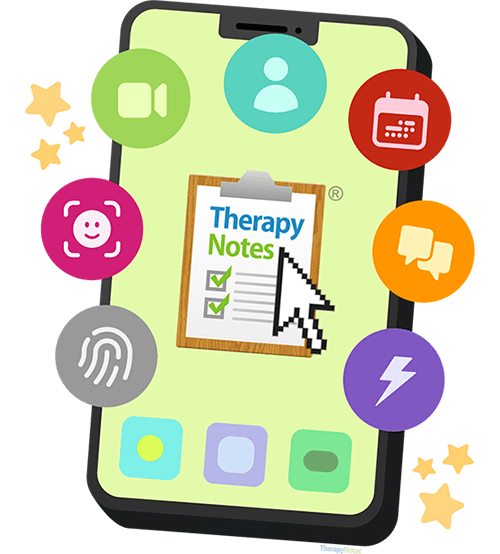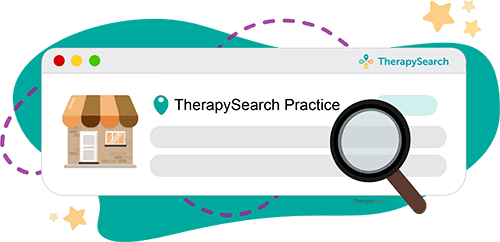TherapyNotes™ COVID-19 Response and Telehealth Options
By TherapyNotes, LLC on March 17, 2020

As part of the county with the highest reported cases of novel coronavirus (COVID-19) in Pennsylvania, we at TherapyNotes™ have been on high alert to make sure we do our part in slowing the spread of the virus and keeping our employees and their families safe. As such, we've instituted a work from home policy for all employees to encourage social distancing.
Because we're well-equipped with remote working capabilities, TherapyNotes™ is unlikely to experience any service interruptions in the face of COVID-19. Our Customer Success team will continue to be available to you via phone and email from 8AM to 9PM ET Monday through Friday and from 8AM to 4PM ET on weekends. We will also continue to make steady progress on new features and development initiatives.
We hope that you, your families, and your clients are staying safe and healthy, but we recognize that the precautions necessary to protect yourself and those around you can impose unprecedented hardship on your business. While TherapyNotes™ does not offer an integrated telehealth platform (yet!), we've compiled some resources from industry research and recommendations from fellow TherapyNotes™ users that will help you continue to serve clients in light of the COVID-19 pandemic.
Telehealth and Guidance for Performing Remote Services
Now more than ever, we're witness to just how critical telehealth is for transforming and promoting better access to health care. Telehealth allows you, as a provider, to meet clients remotely, eliminating the need for direct, in-person contact while maintaining face-to-face communication. Even beyond the active COVID-19 outbreak, holding remote sessions is beneficial for meeting with regular clients who are away for travel and clients who are confined to their home due to weather, health limitations, etc. For clients, telehealth offers the opportunity to receive treatment in the place most comfortable to them and the added convenience of limiting travel and scheduling conflicts.
At TherapyNotes™, we've been actively working on a fully-integrated telehealth solution since last year, and sign up is now open for our beta program. In the meantime, we recommend these great, HIPAA-compliant telehealth services:
- VSee is a video communications platform with a virtual waiting room, a mobile app for patients, and more. Their Basic plan ($49/month) includes unlimited calls and group call capabilities.
- Doxy.me is a secure, easy-to-use telemedicine solution. Doxy.me is free for unlimited calls. Their Professional plan ($35/month) adds dynamic video quality adjustments to match the available bandwidth and a personalized waiting room.
Tip: Telehealth platforms may be experiencing connectivity issues due to high demand. Consider calling your patient on the telephone during the session so that you have clear, consistent audio, and mute the telehealth software. Alternatively, confirm their phone number at the beginning of the session and let them know you will call if you get disconnected.
On March 17, 2020, the federal government announced a significant expansion of telehealth services for Medicare patients, allowing doctors to visit patients via services such as FaceTime or Skype, to aid in the provision of care and to reduce the spread of COVID-19. Additionally, the Health and Human Services Office for Civil Rights will not enforce HIPAA violations related to the use of telehealth. Read the Notification of Enforcement Discretion from the HHS for details.
Regularly, however, HIPAA, best practices, state requirements, and ethical guidelines apply to telehealth just as they do to in-person sessions. You must continue to ensure confidentiality and protect client information. As such, we strongly recommend using HIPAA-compliant services. Take time to carefully consider your choices to ensure the best possible long-term outcomes for you and your clients.
Frequently Asked Questions
Do I need special training or certifications to be a telehealth provider?
There is no explicit legal requirement that you must be "certified" in order to perform telehealth sessions. However, many professional associations such as the American Psychological Association, National Association of Social Workers, and American Counseling Association emphasize in their codes of ethics or telehealth guidelines that telehealth competence (which often involves ample training) is essential for the ethical delivery of services. To this end, the Center for Credentialing and Education (CCE) offers a Board Certified TeleMental Health Provider credential, Person Centered Tech offers a Telemental Health Certification, and the Zur Institute offers a Certificate Program in TeleMental Health and Digital Ethics, among others.
Be sure to investigate the rules of your licensing board and the ethical standards of the associations that apply to you. For further guidance, check out this blog post from Person Centered Tech.
Does insurance cover telehealth?
Reimbursement for telehealth services depends on your location, the services provided, and the payer. Typically, payers will only cover sessions that include both audio and video communication (not audio-only). Check with your payers to confirm your reimbursement rates for telehealth services.
How do I bill for telehealth?
Typically, billing for telehealth sessions requires the Place of Service Code 02 and certain modifier codes (usually 95 or GT), depending on the payer. In TherapyNotes™, you can automatically apply specified modifiers to dates of service according to service code or location. To learn more, visit our help center and read How To Apply a Modifier.
Can I provide services to clients in another state with telehealth?
Typically, you must be licensed in the state the client is located at the time of the session, not necessarily their residence, in order to provide services. With the federal government's recent response to COVID-19, it may be easier for providers to practice across state lines, but state governors must first exercise their emergency powers to allow providers to practice via telehealth in their states. Check with your state licensing board for the regulations that may apply to you.
Do I need a BAA with the telehealth platform I choose?
Yes, you need a Business Associate Agreement (BAA) with your telehealth platform! Because your chosen telehealth platform deals with PHI, signing a BAA is essential to maintaining HIPAA compliance.
How can I send a mass email to my clients?
In the event that you need to communicate closures or new services to your clients, you can export a list of your clients and their email addresses from TherapyNotes™ and import them into the HIPAA-compliant email software of your choice. To get your exported list, navigate to the Patients page, search for the clients you want to email, and click the Export Spreadsheet link at the upper right of the table of search results. Be mindful of patient confidentiality during this process and be sure that your clients won't be able to access the list of email addresses the message was sent to.
* The content of this post is intended to serve as general advice and information. It is not to be taken as legal advice and may not account for all rules and regulations in every jurisdiction. For legal advice, please contact an attorney.
Get more content like this, delivered right to your inbox. Subscribe to our newsletter.
More Content You'll Enjoy

Introducing TherapyNotes® Mobile: Your Practice, On the Go

Mastercard Fee Update 2026: What You Need to Know
